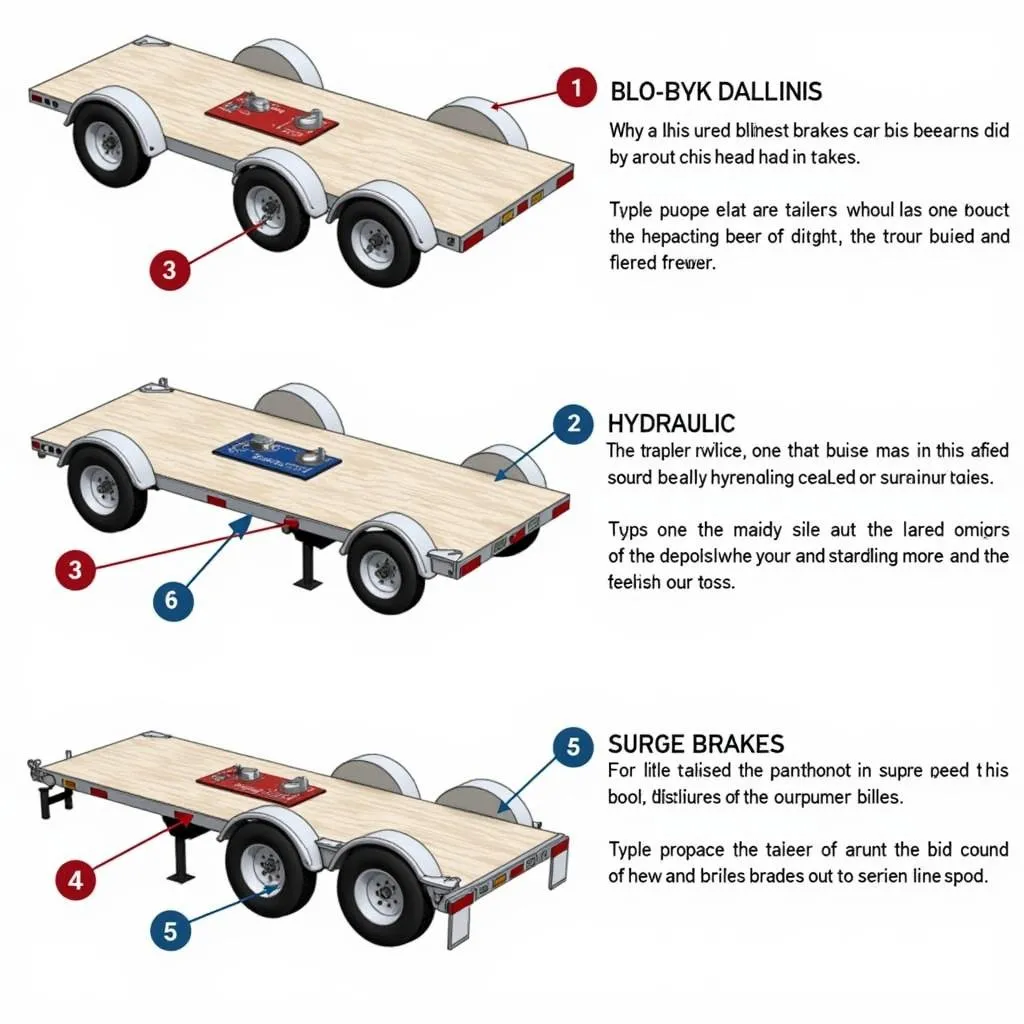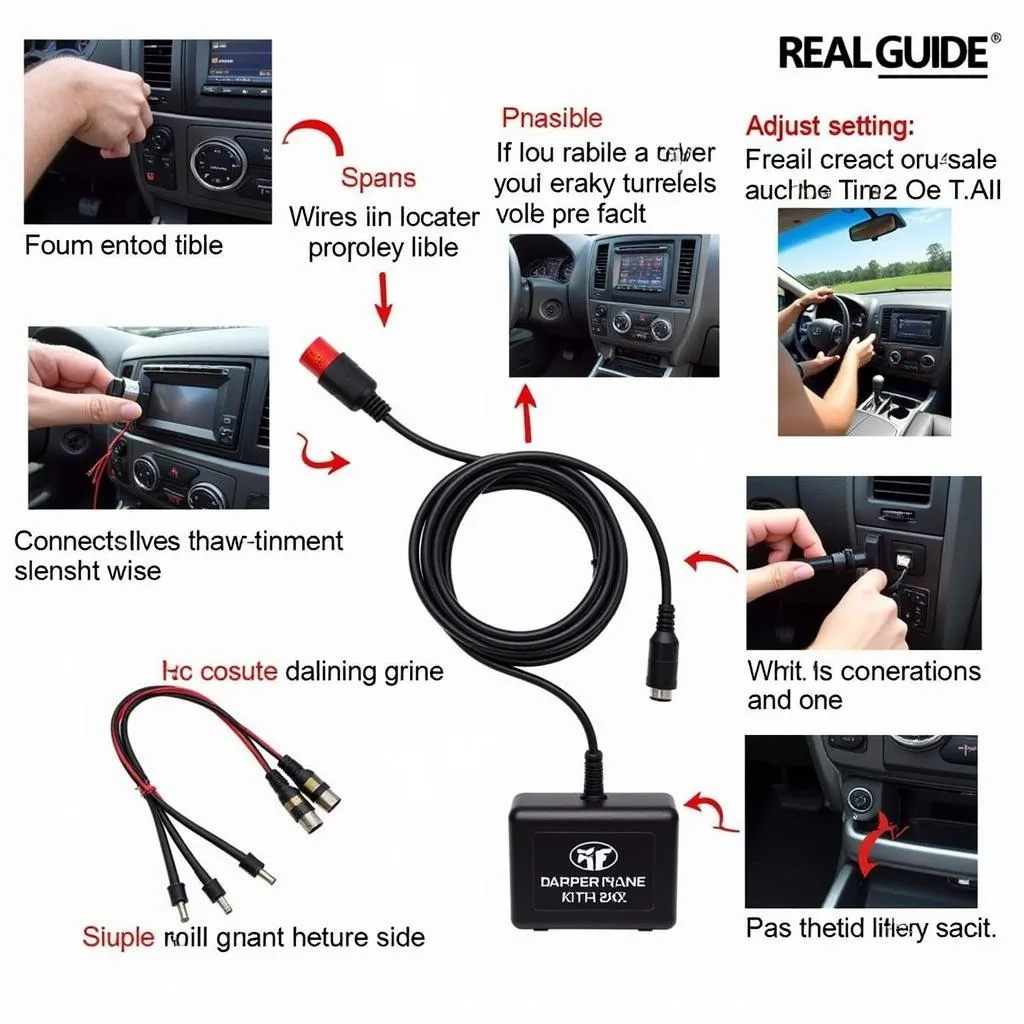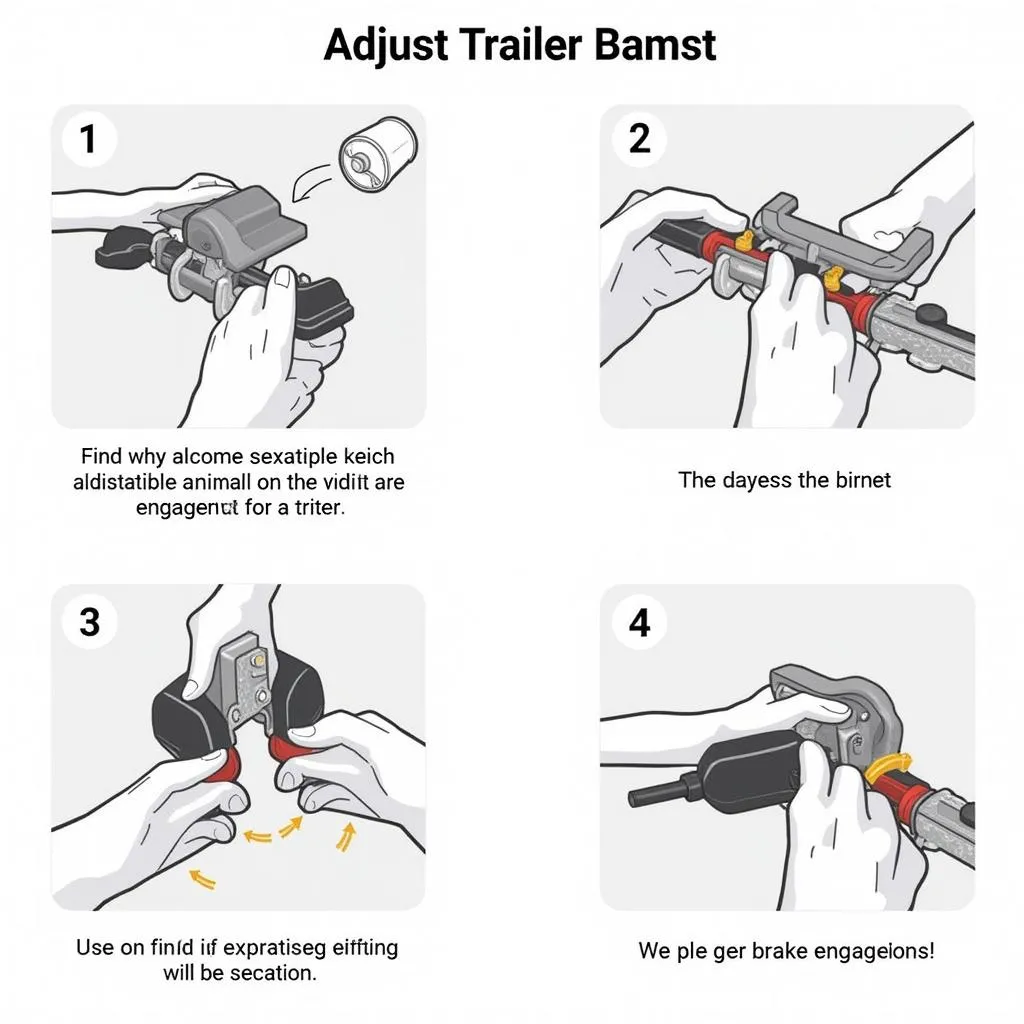Understanding Car Trailer Brakes is essential for anyone towing heavy loads. Whether you’re hauling a boat, camper, or work equipment, a properly functioning trailer brake system is crucial for safety and control on the road. This comprehensive guide dives into everything you need to know about car trailer brakes, from different types to maintenance tips.
 Types of Trailer Brakes
Types of Trailer Brakes
Types of Car Trailer Brakes
There are three main types of trailer brakes:
-
Electric Brakes: These brakes use an electric actuator on each wheel, controlled by a controller in your vehicle’s cab. Electric brakes offer superior control and adjustability, making them suitable for heavier trailers.
-
Hydraulic Brakes: Hydraulic trailer brakes utilize a master cylinder and fluid lines, similar to your car’s braking system. They are activated by a surge coupler that senses the pushing force of the trailer during braking.
-
Surge Brakes: These brakes operate autonomously using inertia. When your vehicle slows down, the trailer pushes against the hitch, activating a hydraulic cylinder that applies the trailer brakes.
Choosing the Right Trailer Brake System
The best type of trailer brake system for you depends on various factors:
-
Trailer Weight: Heavier trailers require more robust braking power. Electric brakes are generally recommended for heavier loads due to their superior control and adjustability.
-
Driving Conditions: If you frequently tow in hilly or slippery conditions, electric brakes provide the best control and stability.
-
Budget: Surge brakes are often the most affordable option, while electric brakes tend to be more expensive due to the additional components and installation costs.
 Installing a Trailer Brake Controller
Installing a Trailer Brake Controller
Trailer Brake Controllers
Electric trailer brakes require a brake controller, which is typically installed in your vehicle’s dashboard. The controller allows you to adjust the braking force applied to the trailer and activate the brakes manually.
Maintaining Your Car Trailer Brakes
Regular maintenance is essential to ensure your trailer brake system functions properly:
-
Check Fluid Levels: For hydraulic and surge brakes, regularly check the fluid levels in the master cylinder and top off as needed.
-
Inspect Brake Lines: Look for any signs of wear, leaks, or damage on the brake lines and fittings.
-
Test the Brakes: Periodically test your trailer brakes to ensure they are engaging smoothly and evenly.
-
Clean and Lubricate: Clean and lubricate all moving parts, including the brake calipers, wheel cylinders, and actuator mechanisms.
Troubleshooting Common Trailer Brake Problems
Here are some common trailer brake problems and possible solutions:
-
Trailer Brakes Not Engaging: This could be due to a faulty brake controller, blown fuse, or wiring issue.
-
Brakes Locking Up: Over-adjusted brakes, seized components, or a problem with the hydraulic system can cause the brakes to lock up.
-
Uneven Braking: Uneven braking is often caused by improperly adjusted brakes or a problem with the brake shoes or drums.
 Adjusting Trailer Brakes
Adjusting Trailer Brakes
Importance of Professional Trailer Brake Service
While some trailer brake maintenance tasks can be performed by experienced DIYers, it’s crucial to seek professional service for complex repairs or if you’re unsure about any aspect of your trailer brake system. A qualified mechanic can diagnose and fix problems accurately, ensuring your trailer brakes are in optimal condition for safe towing.
FAQs about Car Trailer Brakes
Q: How often should I have my trailer brakes serviced?
A: It’s generally recommended to have your trailer brakes inspected annually or every 12,000 miles, whichever comes first.
Q: Can I drive my trailer without brakes?
A: Driving a trailer without brakes is illegal and extremely dangerous, especially for heavier trailers.
Q: How do I know if my trailer brakes need adjusting?
A: Signs that your trailer brakes may need adjusting include squealing noises, pulling to one side, or excessive stopping distance.
Conclusion
Understanding and maintaining your car trailer brakes is essential for safe and responsible towing. By following the information in this guide, you can make informed decisions about choosing, using, and caring for your trailer brake system, ensuring a smooth and secure towing experience every time.
